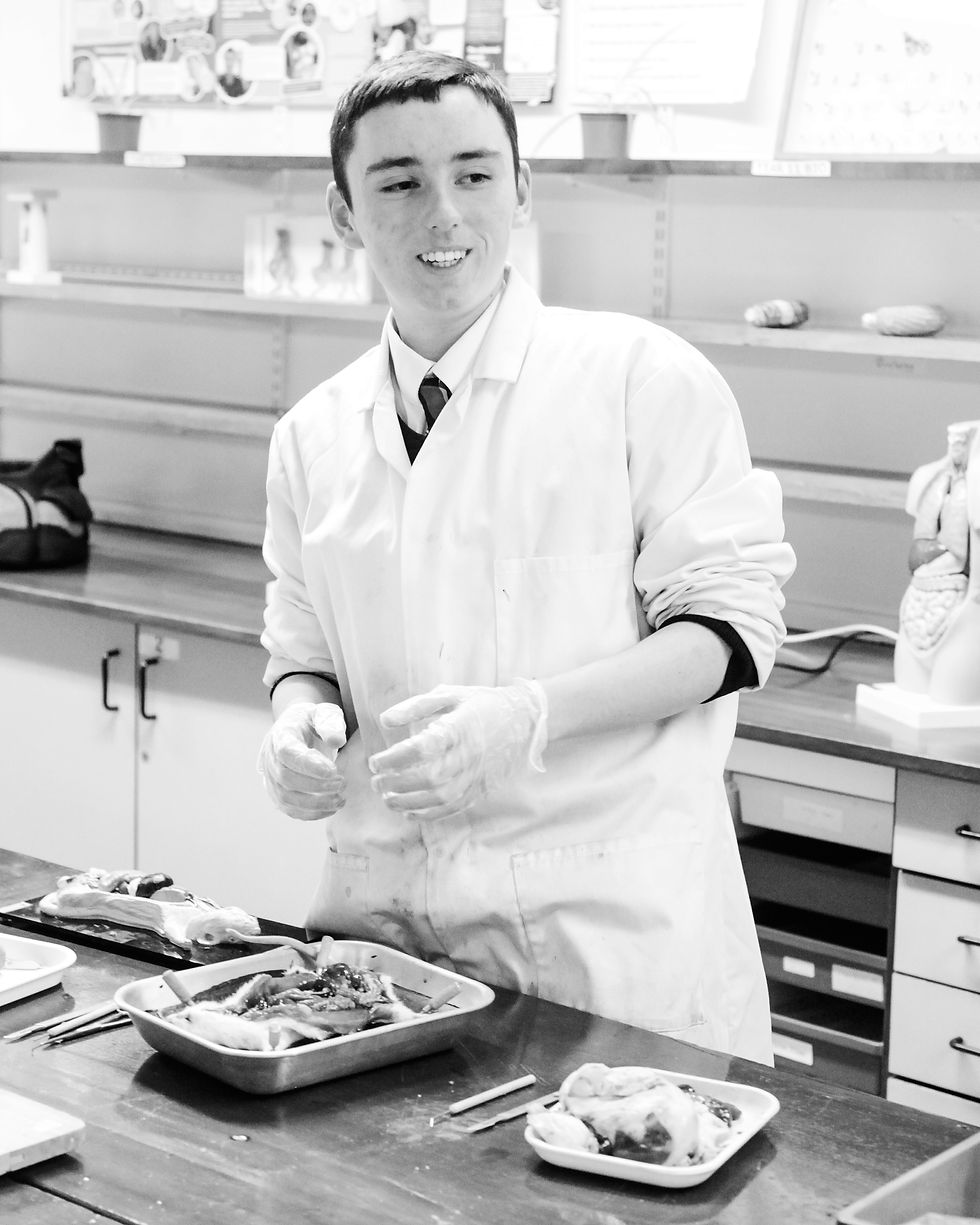



"Biology is the study of complicated things that have the appearance of having been designed with a purpose. "
- Richard Dawkins
/ THE AIMS OF BIOLOGY IN ST. MALACHY'S
-
The acquisition of knowledge and understanding of a range of scientific concepts, generalisations, principles and laws through the systematic study and experience of aspects of the body of knowledge called science.
-
The acquisition of a range of cognitive and psychomotor skills and processes as a result of direct involvement in scientific activities and procedures in the laboratory.
-
The utilisation of scientific knowledge and processes in the pursuit of further knowledge and deeper understanding, and the development of an ability to function autonomously in an area of science studies to solve practical problems and to communicate that experience to others.
/ TEACHING BIOLOGY AT EACH KEY STAGE
In Years 8 to 10 pupils are taught Science, of which Biology is one component, normally by one teacher for the three years. At Key Stage 4, students can select either GCSE Triple Award or Double Award Science. Biology is one of the three components of both options: students are normally taught by a specialist Biology teacher.
Teaching Methods
Students are taught by a variety of methods, including PowerPoint presentations, interactive worksheets, tutorials, DVD clips, CD-ROMs, poster work, field work, practical work and increasingly iPads are becoming embedded in the teaching and learning of Biology.
Links with other subjects
Other subjects that have links with Biology include Chemistry, Physics, Mathematics and Geography.
Specifications
The examination board for GCSE Science: Biology, GCSE Science: Double Award, AS Biology and A2 Biology is CCEA.
Relevance to Career Development
Biology is now one of the most popular A level subjects in the College, and it is a useful preparation for many scientific courses at university e.g. Biological Science, Medicine, Dentistry, Optometry, Pharmacy, Veterinary Science, Sports Science and Food Science and in many cases Biology is required to satisfy the entrance requirement for such courses. There are many opportunities for Biologists in the fields of Ecology, Agriculture and Global Food Security, Biochemistry and Food Technology. However, studying Biology does not limit one to a career in the scientific world. Recent successful students have followed careers in Journalism, Law, Engineering, Actuarial Science and Risk Management, and Accountancy.
AS Level (new specification, starting September 2016)
GCE Biology has two levels: AS and A2. There are three units in each level. Students can take the AS qualification or complete both levels to achieve the full A level qualification. The AS units make up 40% of the full A level qualification, and the A2 units make up 60%.
At each level, students must study all three units.
AS Level
Unit AS 1: Molecules and Cells
Unit AS 2: Organisms and Biodiversity
Unit AS 3: Practical Skills in AS Biology
A2 Level
Unit A2 1: Physiology, Coordination and Control, and Ecosystems
Unit A2 2: Biochemistry, Genetics and Evolutionary Trends
Unit A2 3: Practical Skills in Biology
-
The attainment of a perspective or way of looking at the world together with some understanding of how it complements and contrasts with other perspectives or ways of organising knowledge and inquiry.
-
The attainment of a basic understanding of the nature of advanced technological societies, the interaction between science and society, and the contribution science makes to our cultural heritage.
-
The realisation that scientific knowledge and experience is of some value in the process of establishing a sense of personal and social identity.
-
Teachers try, where possible, to have practically based lessons with emphasis on safety, and where possible allow students to develop planning and evaluative skills. Throughout the age range pupils should be encouraged to make use of information technology. They should be encouraged to record work in their own words, and to develop library skills.
-
Finally, teachers focus on the idea that we are teaching children and young people to understand and enjoy Biology.

DR D. ROBERTS (Head of Department)
MR K. JARDINE
MRS N. MCALISTER




